Stay in the know on all smart updates of your favorite topics.
Sensemakers workshop on open source LLM's

Michiel Bontenbal will give a practical update on running open source LLM’s locally
De workshop is in het Engels maar we spreken ook Nederlands!
Lezing generatieve AI en deepfakes (Dutch)

Kun je nog weten wat betrouwbaar is in tijden van generatieve AI en deepfakes?
Deze Nederlandstalige lezing is bedoeld voor iedereen die meer wil weten over de risico’s van deepfakes (denk aan stemklonen, plaatjes en chatgpt).
Wat is de globale werking, waar kom je het tegen, wanneer moet je extra voorzichtig zijn en wat kun je doen om jezelf te beschermen en manipulaties te doorzien.
Waag Open: Quantum game night
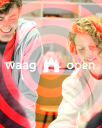
Bij de eerste editie van Waag Open in het nieuwe jaar duik je spelenderwijs dieper in kwantumtechnologie. Kom langs bij deze game night op donderdag 8 januari en corrigeer samen met je medespelers fouten in kwantumcomputers.
Waag heeft in samenwerking met Universiteit Leiden een digitaal spel ontwikkeld, waarbij je jouw creativiteit inzet voor foutcorrectie in kwantumcomputers. Menselijke vindingrijkheid is nog altijd van grote waarde bij het oplossen van problemen. Precies dit is wat een machine learning-model nodig heeft om fouten in kwamtumcomputers ook op grote schaal te kunnen opsporen. Deze avond speel je het spel en leer je over kwantumtechnologie.
We trappen de avond af met een interactief gesprek over de maatschappelijke impact die kwantumtechnologie kan hebben. Aan het einde van de avond zijn we benieuwd naar jullie ervaring met het spel.
De avond wordt geleid door (spel)ontwerper Douwe-Sjoerd Boschman. Voertaal tijdens dit evenement is Engels. Voorkennis van kwantumtechnologie is niet nodig!
Programma
| 19:30 - 19:45 uur | Welkom & introductie |
|---|---|
| 19:45 - 20:15 uur | Interactief gesprek over maatschappelijke impact van kwantumtechnologie |
| 20:15 - 21:30 uur | Spelen van het kwantumspel |
Over Douwe-Sjoerd Boschman
Douwe-Sjoerd Boschman is freelance conceptontwerper voor interactieve media en schrijver van de prentenboeken serie 'Stout Konijn'. Als spelontwerper creëert hij dwaalsporen door de natuur, educatieve bordspellen over quantum technologie maar ook workshops en e-learnings – zoals de Nationale AI-cursus voor de Creatieve Industrie – over de invloed van nieuwe technologie op onze samenleving.
Toegankelijkheid
Mocht je krap bij kas zitten en wel graag aan dit evenement willen deelnemen, neem dan contact op met sanna [@] waag [punt] org. Het Waag-gebouw is niet toegankelijk voor bezoekers met een mobiliteitsbeperking. Bekijk hier onze toegankelijkheidsinformatie.
Waag Open
Elke eerste donderdagavond van de maand opent Waag haar deuren! Kom langs om te discussiëren en te doen. Want we gaan niet alleen in discussie over maatschappelijke thema's en de toekomst – je leert daarnaast ook altijd iets praktisch. Iets dat je altijd al hebt willen uitproberen, zoals de 3D-printer in het FabLab, of juist iets dat je nooit had verwacht, zoals uitpluizen hoe DNA in elkaar zit in ons biotech-lab. Waag Open vindt plaats in de maakplaatsen op de eerste en tweede verdieping van het historische Waaggebouw op de Nieuwmarkt.
Waag Open: social socials
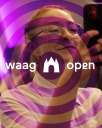
Klaar met je afhankelijkheid van big tech’s social mediaplatforms? Ben je op zoek naar een alternatief waar sociale interactie en verbinding weer centraal staan? Waag Futurelab helpt je op weg!
Tijdens deze Waag Open gaan we samen aan de slag met de (on)mogelijkheden van social media en speuren we nieuwe alternatieven af. Want hoewel sociale media niet meer weg te denken zijn uit ons dagelijks leven, hebben we geen regie over de platformen die we zo intensief gebruiken. Het verdienmodel van big tech zet bewust in op verslaving en polarisatie, waarbij hun algoritmen desinformatie verspreiden en zo onze democratie ondermijnen. Met eindeloze, verslavende feeds zetten ze bovendien onze mentale gezondheid onder druk.
Dat moet anders. En gelukkig: dat kán ook anders.
Social socials
In deze workshop leer je meer over de fediverse: een open netwerk van sociale media gebaseerd op publieke waarden en open protocollen. Ondanks deze idealen zijn ze nog veelal onder de radar, maar daar brengen we graag verandering in. Tijdens deze avond zal je praktische ervaring opdoen, zodat je ook na de workshop kunt gaan experimenteren op de fediverse.
Programma
| 19:30 - 19:45 uur | Welkom & introductie |
|---|---|
| 19:45 - 21:15 uur | Workshop |
| 21:15 - 21:30 uur | Afsluiting & borrel |
Om 19:30 uur start het programma met een korte introductie van een van Waags experts. Daarna is er een workshop waarin je verschillende platforms ontdekt en je wordt geholpen om je weg te vinden op het fediverse. Een andere interassante case of vraag? Gooi ‘m in de groep!
Waag Open
Elke eerste donderdagavond van de maand opent Waag haar deuren! Kom langs om te discussiëren en te doen. Want we gaan niet alleen in discussie over maatschappelijke thema's en de toekomst – je leert daarnaast ook altijd iets praktisch. Iets dat je altijd al hebt willen uitproberen, zoals de 3D-printer in het FabLab, of juist iets dat je nooit had verwacht, zoals uitpluizen hoe DNA in elkaar zit in ons biotech-lab. Waag Open vindt plaats in de maakplaatsen op de eerste en tweede verdieping van het historische Waaggebouw op de Nieuwmarkt.
Toegankelijkheid
Mocht je krap bij kas zitten en wel graag aan dit evenement willen deelnemen, neem dan contact op met sanna [@] waag [punt] org.
Waag Open: van wie is de ruimte?

In de ruimte is steeds meer technologie te vinden: satellieten voor mobiel netwerk, voor weer- en klimaatmetingen en voor oorlogsvoering. Hoeveel voller kan het daarboven worden en wat hebben we daar eigenlijk over te zeggen? Op donderdag 2 oktober gaan we in gesprek met kunstenaar Michele Boulogne en antropologe Danick Trouwloon over technologie in de ruimte en de invloed daarvan op onze perceptie van de aarde.
> Hoe zien wij de aarde vanuit de ruimte? Van een afstand lijkt het een rustgevende blauwe bol. Maar in werkelijkheid staat de wereld in de fik.
De van oorsprong Frans-Caribische kunstenaar Michèle Boulogne onderzoekt hoe klimaatverandering begrepen kan – en moet – worden door de ogen van lokale gemeenschappen. De Nederlands-Caribische onderzoeker Danick Trouwloon onderzoekt ecologisch beheer en klimaatverandering in relatie tot de bevolking op de verschillende eilanden. Tijdens Waag Open gaan zij met Waag’s Miha Tursic in gesprek over wat de ruimte betekent voor verschillende culturen, ons beeld van de aarde en het klimaat, en hoe technologie én wijzelf daar invloed op hebben.
Kom op donderdag 2 oktober naar Waag Open en laat ons weten hoe jij de aarde ziet!
Programma
| 19:30 - 19:45 uur | Welkom & introductie |
|---|---|
| 19:45 - 21:15 uur | Interactief gesprek met Michele Boulogne, Danick Trouwloon en Miha Tursic |
| 21:15 - 21:30 uur | Napraten & borrel |
Waag Open
Elke eerste donderdagavond van de maand opent Waag haar deuren! Kom langs om te discussiëren en te doen. Want we gaan niet alleen in discussie over maatschappelijke thema's en de toekomst – je leert daarnaast ook altijd iets praktisch. Iets dat je altijd al hebt willen uitproberen, zoals de 3D-printer in het FabLab, of juist iets dat je nooit had verwacht, zoals uitpluizen hoe DNA in elkaar zit in ons biotech-lab. Waag Open vindt plaats in de maakplaatsen op de eerste en tweede verdieping van het historische Waaggebouw op de Nieuwmarkt.
Toegankelijkheid
Mocht je krap bij kas zitten en wel graag aan dit evenement willen deelnemen, neem dan contact op met sanna [@] waag [punt] org.
Het programma is een resultaat van het More-than-planet project en is mede mogelijk dankzij het 3Package Deal programma van het AFK dat Michele Boulogne’s werk ondersteunt.
Urban Clean Air Roundtable

I'm reaching out to warmly invite you to join an upcoming roundtable we’re organizing on Tuesday June 17th focused on clean air in cities (Flyer is attached).
Given Amsterdam InChange's strong role in engaging professionals and communities in environmental monitoring, we believe your perspective would be highly valuable in the conversation. We also see this as a great opportunity to share your work and connect with other researchers, policy makers, and civil society actors active in the clean air space.
The content is a round table session, in which we share what is being worked on and what possible future developments are from different perspectives. The program for the day:
- 11:00 Welcome
- 11:15 Introduction
- 11:30 Presentations on current research/ policies
- 12:45 Lunch
- 13:30 Brainstorm: what-else-can-we-do-and-who-would-we-need-for-that?
- 14:45 Closing up with ten-agreements-plan
We still have a few speaking opportunities available, so if you or someone from your team would be interested in presenting your work or simply joining the discussion, we’d be delighted. Please feel free to email me or my colleague Sanne (sanne.van.breukelen@cenexgroup.nl) directly if you'd like more details or if you’d like to participate.
Uncover the Hidden Tech of Amsterdam’s Streets

Join us on June 25 for the Sensor Discovery Tour, a guided walk through the bustling Leidseplein area — a real-time lab for smart city technologies. As sensors increasingly shape how we move, live, and feel safe, concerned citizens are asking: Who sees what, and why?
Combining the new Transparent City AR app prototype and your own phone we’ll reveal the invisible digital layer of the city — from cameras to air quality sensors — and explore what these devices measure, who owns the data, and how they impact our rights.
This isn’t just a tour — it’s a growing citizen-led movement for digital transparency in public space. Together, we’ll reflect on the ethics, ownership, and social value of urban tech. Led by experts in sensor policy and urban innovation, the tour invites Amsterdammers, technologists, designers, and policymakers to reimagine the smart city as open, visible, and accountable.
🕓 25 June 2025 | 16:00–18:00
📍 Start: Leidseplein | End: De Balie
🎟️ Free – registration required
Hyperlink

Op zaterdag 14 juni organiseren Waag Futurelab en PublicSpaces Hyperlink: een dag waarop je kunt maken, ontdekken en meedenken - op weg naar een beter internet. Hier leer je in een Augmented Reality (AR) game hoe je nepnieuws herkent, fix je jouw data-slurpende telefoon, maak je jouw eigen slimme deurbel, en nog veel meer.
Programma
Deuren gaan open om 14:00 uur. Doorlopend zijn er workshops en exposities te bezoeken, en vanaf 16:00 uur starten ook de verschillende talks.
Workshops
De slimste deurbel
Weet jouw deurbel alles van je buren? Of juist van de privacywetten? Welke deurbel plaatst de grappigste opnames op het internet? Kunstenaar Roos Groothuizen neemt je mee in de wereld van slimme deurbellen, en dan ga je zelf aan de slag! Wie ontwerpt de slimste deurbel?
Escape Fake - een AR escaperoom over nepnieuws
Via een Augmented Reality game stap je in een virtuele wereld waar je in raadsels en puzzels leert desinformatie te onderscheiden van betrouwbare informatie op het internet. Stap in het virtuele Museum of Fake met voorbeelden van historisch nepnieuws, of onderzoek desinformatie, phishing en deepfakes in de games The Bus Situation en Trouble with eLiza.
Fix Your Phone Shop
Je smartphone is stuk - en het is niet alleen een gebarsten scherm. Het probleem zit in de apps, het besturingssysteem, de hardware, en het beïnvloedt jouw privacy, je gezondheid en onze planeet. Dat kan anders!
Social Socials Helpdesk
Klaar met je afhankelijkheid van big tech’s social mediaplatforms? Wij helpen je op weg! Welke echt sociale socials bestaan al? Waar moet je op letten? Hoe word je een Mastodont op Mastodon? Zijn Pixelfed en Peertube wellicht iets voor jou? Kom langs voor al jouw vragen.
Expo's
Acid Clouds
Op zoek naar de fysieke impact van onze digitale cloud. De exponentiële groei van ons datagebruik vraagt om steeds meer datacenters, die als enorme blokken ruimte innemen in onze fysieke leefomgeving. Ontwerper Niels Schrader en fotograaf Roel Backaert gingen voor Acid Couds ‘s nachts op pad om de datacenters vast te leggen die nodig zijn om onze digitale wereld draaiende te houden.
Regenerative Tech
Datacenters, energieverbruik, oprakende natuurlijke grondstoffen – technologische innovatie en ons ecosysteem lijken niet samen te gaan. Hoe kunnen we een digitale wereld bouwen die ook onze planeet ondersteunt? Kunstenaars en ontwerpers laten zien dat het wél kan! Met werken van Leanne Wijnsma, Lukas Engelhardt, Rein van der Woerd en Sunjoo Lee.
Talks
Achter de schermen van onze telefoons
<em>16:00 uur - VPRO Tegenlicht mini-meetup met Chris Vijn</em>
Chris Vijn is regisseur bij VPRO Tegenlicht, en vertelt in deze mini-meetup over de aflevering <em>Zo bevrijd je je smartphone van big tech volgens Marleen Stikker</em>. Samen gaan we in gesprek over hoe je de digitale wereld in beeld brengt.
Hoe ziet het internet er nou echt uit?
<em>17:00 uur - Niels Schrader & Judith Veenkamp</em>
Met <em>Acid Clouds</em> onderzoekt ontwerper Niels Schrader hoe het internet eruit ziet in onze fysieke wereld, met een fotoserie van de datacenters in Nederland en portretten van de grondleggers van ons internet. Samen met Judith Veenkamp (Waag Futurelab) praten we over hoe het internet er nu uit ziet – en hoe we willen dat het eruit komt te zien.
Mesh networks
<em>18:00 uur - Radical Data Collective & Pourya Omidi</em>
How can we create a resilient internet alternative for when central services cut out?
Is het (AI) kunst of kan het weg?
<em>19:00 uur - Laurence Scherz & Ola Bonati</em>
ChatGPT als je therapeut, deepfakes, en plaatjes van mensen die nooit bestaan hebben. Wat gebeurt er nu AI zich diep in onze teksten, beelden en zelfs sociale leven wortelt? Onderzoeker en schrijver Laurence Scherz vertelt over de verwachtingen, angstbeelden en dromen die we misschien wel hebben over AI. Samen met Ola Bonati (Waag Futurelab) onderzoeken we wat het betekent als grote commerciële algoritmes creatief werk overnemen.
Op naar een beter internet
Wat is jouw eerste herinnering van ‘het internet’? Een bezoek aan de Digitale Stad (DDS) via een Telnet verbinding, de dansende banaan van Hyves, chatten op MSN of het downloaden van muziek Napster of Limewire voor je mp3 speler of diskman.
Wat je herinnering ook is: grote kans dat je eerste herinnering een beter gevoel geeft dan het internet waar je nu dagelijks gebruik van maakt. We betalen met onze data, zijn verslaafd aan scrollen en hebben steeds meer te maken met desinformatie, haatspraak en politieke manipulatie op sociale mediaplatformen. Het huidige internet kenmerkt zich door een aantal grote techbedrijven die de regels bepalen. We zijn meer dan ooit afhankelijk van sociale mediaplatformen van big tech en die bedrijven raken steeds meer verweven met politieke macht. Het moet en kán anders - bij Hyperlink ontdek je hoe!
Toegankelijkheid
Mocht je krap bij kas zitten en wel graag aan dit evenement willen deelnemen, neem dan contact op met claudia [@] waag [punt] org.
PublicSpaces conferentie 2025: Shaping our Digital Future
Wil je je verder verdiepen in het onwerp van een beter internet? Kom op vrijdag 13 juni naar Pakhuis de Zwijger voor de vijfde editie van de PublicSpaces conferentie!
Dit evenement is een onderdeel van de ToekomstTiendaagse van 12 t/m 21 juni 2025, een programma in het kader van de viering van Amsterdam 750 jaar.
Waag Open: de slimste deurbel
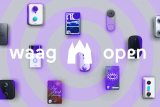
Weet jouw deurbel alles van je buren? Of juist van de privacywetten? Welke deurbel plaatst de grappigste opnames op het internet? Kortom; wie heeft de slimste deurbel?
Een op de vijf huizen in Nederland heeft inmiddels een slimme deurbel, met als populairste deurbellen die van Amazon (Ring), Google (Nest) en het Chinese Anker (Eufy). Maar de slimme deurbel heeft ook een keerzijde; geen van die fabrikanten toont een oprecht initiatief om het ontwerp van hun producten op de Nederlandse privacywetten aan te passen. Ze slaan beelden veel langer op dan het advies van de Autoriteit Persoonsgegevens (AP), laten het nooit merken als ze filmen, hoogstens met een sticker die voorbijgangers op de hoogte zou moeten stellen van actief cameragebruik.
Tijdens Waag Open: De slimste deurbel bespreken we de recente ontwikkelingen rond de slimme deurbellen met ontwerper Roos Groothuizen. Ook ga je aan de slag met je eigen slimme deurbel! Aan welke voorwaarden wil je dat jouw slimme deurbel voldoet? Bouw je een slimme deurbel die helemaal in lijn is met privacywetten? Een deurbel die het buurtgevoel versterkt? Of misschien juist een bel die meteen alle beelden automatisch op internet zet?
Programma
| 19:30 - 19:45 uur | Welkom en intro |
|---|---|
| 19:45 - 21:15 uur | Presentatie Roos Groothuizen |
| 21:15 - 21:30 uur | Smart Deurbel ontwerpen |
| 21:30 - 22:00 uur | Nabespreking en borrel |
Sensemakers knowledge sharing: Deepfakes & Digital Humans

This Wednesday we have 2 speakers introducing you to the latest on synthetic media (deepfakes) and digital humans.
Manon den Dunnen
Introducing you to the latest developments in synthetic media (deepfake, LLM's)Mao Lin Liao (Reblium)
Introducing the challenges and possibilities of customized digital humans (avatars) and their various applications.
Looking forward to seeing you! Presentations are in Engels, maar we spreken ook Nederlands!
🚀 Oproep voor organisaties in de publieke sector! Draag bij aan de ontwikkeling van ethische mobiele innovatie! 🌍
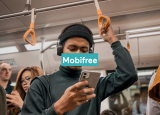
Wil jij de status quo uitdagen en bijdragen aan een mobiel ecosysteem dat privacy, duurzaamheid en ethische technologie vooropstelt?
💡 Bij Waag Futurelab zijn we vastbesloten om alternatieven te verkennen voor de datahongerige apps en apparaten die momenteel de techwereld domineren. Via ons onderzoeksproject Mobifree nodigen we organisaties in de publieke sector uit om een open-source Murena-smartphone te testen en samen met ons de toekomst van ethische, open-source mobiele technologie in Europa vorm te geven.
Dit is jouw kans om:
✅ Als organisatie Murena-smartphones te testen, voorzien van open-source apps.
✅ Feedback te geven die direct invloed heeft op de volgende generatie mobiele oplossingen.
✅ Bij te dragen aan een duurzaam, veilig en inclusief alternatief voor Big Tech.
🔍 Wat kun je verwachten?
- Doe mee aan een pilot van twee maanden (februari–oktober 2025) en verken hoe open-source tools jouw werk- en persoonlijke behoeften kunnen ondersteunen.
- Test baanbrekende technologie terwijl je pleit voor ethische en duurzame softwareontwikkeling.
- Maakt deel uit van een community die een privacy gerichte en Big Tech-vrije toekomst vormgeeft!
🙌 Wie kan deelnemen?
We een groep van maximaal 30 deelnemers om de volgende kerngebieden te verkennen:
- Besturingssystemen
- Messaging-apps
- Appstores
- Cloudservices
📩 Hoe kun je je aanmelden?
Stuur een e-mail naar bente[at]waag[dot]org met de naam van je organisatie, het aantal deelnemers, gekozen categorieën en een korte motivatie om mee te doen. Vervolgens zullen wij contact met je opnemen!
Doe met ons mee om mobiele technologie opnieuw vorm te geven voor een betere, privacy-respecterende Europa 🌟
Research Interviews Request for PhD Dissertation!
My name is Pınar Ebe-Güzgü, a PhD student at İzmir Katip Çelebi University, Turkey, currently conducting research at the University of Twente. My doctoral research focuses on social justice and disadvantaged groups in the context of smart city applications, with a particular emphasis on the mobility of elderly people (defined by WHO as people over the age of 65).
As part of my research, I conduct in-depth interviews with residents (aged 65+) of Amsterdam, caretakers of elderly individuals, and those working on (or with expertise in) smart city initiatives. The goal is to explore the mobility experiences of 65+ people in Amsterdam and develop policy recommendations to enhance social justice in urban management.
If you would like to share your experiences, your participation in this research would be invaluable. All interviews will be conducted at a time and format that suits you.
Thank you for your time and consideration. Your insights will greatly contribute to our understanding of how smart city applications impact the mobility and quality of life of older individuals.
If you are interested in participating, please reach out to me via the email address below:
p.ebe-guzgu@utwente.nl
Best regards,
Pınar Ebe-Güzgü
Waag Open: Expeditie DNA Digitaal

Nog nooit was het zo makkelijk om je DNA te laten testen, op afkomst, verwantschap en op gezondheid. Je staat daarbij je meest persoonlijke data af, zonder controle te hebben over wat er met die gegevens gebeurd. Gelukkig kan het digitaliseren van DNA binnenkort ook anders - op zo’n manier dat we een bruikbare database voor de samenleving bouwen, terwijl jij controle over je eigen data behoudt. Tijdens Waag Open op donderdag 12 december duiken we in de waarde en in de risico’s van een digitale DNA databank. Maak kennis met de eerste testpersonen en ontwerp zelf mee!
Kijk voor meer informatie op waag.org.
Datum: Donderdag 12 december
Tijd: 19:30 - 22:00 uur
Locatie: Waag, Nieuwmarkt 4, Amsterdam
Waag Open
Elke eerste donderdagavond van de maand opent Waag haar deuren! Kom langs om te discussiëren en te doen. Want we gaan niet alleen in discussie over maatschappelijke thema's en de toekomst – je leert daarnaast ook altijd iets praktisch. Iets dat je altijd al hebt willen uitproberen, zoals de 3D-printer in het FabLab, of juist iets dat je nooit had verwacht, zoals uitpluizen hoe DNA in elkaar zit in ons biotech-lab. Waag Open vindt plaats in de maakplaatsen op de eerste en tweede verdieping van het historische Waaggebouw op de Nieuwmarkt.
Lectures on the development of systems that process and analyze huge amounts of data
AI requires the development of database systems that are able to process and analyze huge amounts of data in a fast and efficient way. CWI researchers play a pioneering role in the development of such database architectures, and have attracted international datawarehouse companies to Amsterdam.
One of those pioneers is Marcin Żukowski, who co-developed a database management systems that had great societal impact and is used by tech giants to this day. He is the co-founder of software company Snowflake, a Silicon Valley based company that offered the first cloud-based data warehousing service that is truly designed for the cloud. Snowflake uses vectorized query execution and lightweight compression methods in its columnar data storage, two techniques that were co-designed by Żukowski during his PhD years at CWI.
For this achievement Żukowski will receive the Dijkstra Fellowship on 21 November at CWI. This fellowship is awarded once in every five years by CWI. This day is also filled with lectures on the topic of the architecture of data processing and analysis systems.
SHARE YOUR STORY AND MAKE AN IMPACT! Participants involving for documenting and mapping Chinese diasporic heritage in the Netherlands

Almost in every metropolitan city in the world exists a Chinatown where Chinese diasporic communities live and conduct commercial activities. In recent years, many countries have started listing and conserving Chinese diasporic heritage as their dynamic cultural resources that represent human migration histories and cultural diversity.
Chinese diasporic communities came to the Netherlands in the early 20th century. The Chinatown in Amsterdam is one of the main Chinatowns in the Netherlands, and is well-known in Europe. However, very few studies in the field of heritage management reveal and discuss the cultural significance (heritage attributes, values from various stakeholders) and management models.
We are researchers from the UNESCO chair in Heritage and Values, TU Delft. We are now looking for participants for a research project on Chinese diasporic heritage in the Netherlands, also called “共同保育我們的唐人街遺產” in Chinese. If you:
- come from a Chinese family with a migration background
- (used to) live in/work in/have emotional connections to Chinatown areas
- would like to share your stories/interests about Chinese diasporic heritage in the Dutch Context
......
Join us for this initiative for understanding, documenting and mapping the place where we all belong! You will be able to tell your own heritage, histories and stories, and encounter dynamic groups of heritage enthusiasts. Your participation will help us understand further the vibrant cultural legacy, which is valuable for keeping and telling future generations.
Feel free to fill in or share this participant form. We contact you and organize further activities (e.g. interview, focus group meeting, workshop, etc.) in the future.
For more information, you can also reach us through:
- Email: yan.zhou@tudelft.nl
- Tel: +31(0)647824405
- LinkedIn: https://www.linkedin.com/in/yan-zhou-45a79b290
_____________________________________________________________
Yan ZHOU (PhD researcher)
Dr. Ana PEREIRA RODERS (Professor)
Dr. Lidwine SPOORMANS (researcher & lecturer)
TU Delft – UNESCO Chair in Heritage and Values
Faculty of Architecture and the Built Environment
Demoday #23 Knowledge Session: An Introduction to Socratic Design
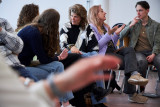
During our 23rd Demo Day on April 18, 2024, Ruben Polderman told us more about the philosophy and method of Socratic Design. It's important for a city to collectively reflect on a good existence. Socratic Design can be a way to think about this together, collectively.
Thinking and Acting Differently with Socratic Design
Together with his colleagues at the Digitalization & Innovation department of the Municipality of Amsterdam, Ruben explored how a city should deal with innovation and digitalization. Things were progressing well. The municipality could act swiftly; for example, promising Smart Mobility research and innovation projects were initiated with new partners. However, the transitions are heading in various directions, and progress remains limited. No matter how groundbreaking innovation is, there's a danger in trying to solve problems with the same mindset that caused them. The ability to perceive or think differently is therefore crucial. More crucial, even, than accumulated knowledge, as filosopher David Bohm suggested.
Through Socratic Design, we can collectively improve the latter. You work on your own presuppositions, enhance your listening skills, and deepen your understanding of our current dominant narratives to create new narratives and practices. Ruben guided us through examples and exercises to help us understand what narratives and presuppositions entail.
Narratives
"We think we live in reality, but we live in a narrative," Ruben proposes to the group. What we say to each other and how we interact creates a culture that shapes the group and its actions. Narratives are stories that guide our culture, values, thoughts, and actions. They are paradigms so deeply rooted that we no longer question them and sometimes believe there is no alternative. Our current dominant narrative has significant consequences for the Earth and humanity, and although it seems fixed, we can also create new narratives together if we choose to do so.
We must fundamentally seek a good existence within safe ecological boundaries. This should go beyond the transitions we are currently favouring, which sustain our lifestyle but just make it less harmful for the environment. If we want to create new stories with new, positive human perceptions and lifestyles, we must first examine our current narrative and presuppositions. We will need to deconstruct our current ways of living and thinking, much like the Theory U method mentioned during the previous Knowledge Session (see our recap article of this session).
Understanding Presuppositions
Ruben showed us various themes and images to collectively practice recognizing presuppositions. For example, a photo of a medical patient and doctors in action demonstrates that our feeling of "to measure is to know" is also crucial in healthcare. The doctors focus on the screen, the graph, the numbers, and therefore have less focus on the patient; the human, themselves. A photo of the stock market, where a group of men is busy trading stocks, also illustrates our idea of economic growth. Here too, there is a fixation on numbers. Ideally, they're green and going up, but meanwhile, we can lose sight of what exactly we're working towards and what exactly it is that we’re ‘growing’.
As a group, we discussed some presuppositions we could find in our field of work. For example, we talked about our need for and appreciation of objective data, and technologism; the belief in solutions rooted in technology and digitalization.
Fundamental Presupposition Shifts and New Narratives
If you flip a presupposition like Technologism and suggest that Social Interaction could be our salvation and solution to many of our problems, you set off a fundamental presupposition shift. If you translate this into practical actions or experiments, you can collectively understand how a newly created presupposition functions. As a group, we worked on this. During this session, I myself worked with an example from the field of mobility.
If I were to apply this new presupposition in the field of mobility and we look at the development of cars, perhaps we shouldn't go towards autonomous vehicles (technologism), but look for ways to motivate and strengthen carpooling (social interaction). As an experiment, you could, for example, set up an alternative to the conventional car lease plan. Employees of an organization don't all get the option to lease a car; instead, it's considered who could commute together, and there's a maximum of 1 car for every 4 employees per organization. Just like going to an away game with your soccer team on Sundays as a kid; enjoyable!
Read More
This session was an introduction and gave us a good initial understanding of this philosophy and method, but there's much more to discover. The method also delves into how presuppositions are deeply rooted in us, how we validate this with feeling in our bodies, and dialogue methods to collectively arrive at new values and narratives. There's more explained about Socratic Design on Amsterdam's Open Research platform.
PublicSpaces conferentie 2024
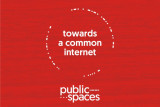
Op 6 en 7 juni organiseren PublicSpaces en Waag Futurelab de vierde editie van de PublicSpaces conferentie met als thema 'Taking Back the Internet'. Het tweedaags programma vindt plaats in Pakhuis de Zwijger. Via panels, keynotes, rondetafelsessies, lezingen, kunst en cultuur banen we ons een weg richting een internet waar we gezamenlijk de regels bepalen.
> Taking Back the Internet!
Anno 2024 is het gros van digitale diensten en platforms in handen van enkele commerciële Big Tech bedrijven. Deze centralisatie van macht is niet in lijn met hoe het internet ooit bedacht is en zorgt zelfs voor maatschappij-ontwrichtende problemen. Van privacyschending en van beïnvloeding van verkiezingsuitslagen tot discriminatie door bevooroordeelde algoritmes: het monopolie van Big Tech raakt iedereen.
Hoe herwinnen we - als burgers, organisaties en overheden - de controle op onze data en ons digitale leven? Als we zelf willen kunnen bepalen hoe ons digitale ecosysteem eruit ziet, moeten we onafhankelijk beslissingen kunnen nemen over het ontwerp, gebruik en beheer van digitale hulpmiddelen en platforms. Tijdens de conferentie gaan we daarom met sprekers, publiek en kunstenaars in gesprek over eigendom van data, privacy, interoperabiliteit, decentralisatie en meer. Kortom: technologie gebaseerd op publieke waarden.
Programma
Het complete programma wordt in de komende weken bekend gemaakt, maar de eerste namen zijn al bekend! Staatssecretaris Alexandra van Huffelen zal de conferentie openen. Futurist Karen Palmer verzorgt de opening keynote, en econoom Francesca Bria neemt ons mee in een Europese strategie voor het ontwikkelen van een ethische digitale economie. Verwacht ook bijdragen van Luna Maurer, Mieke van Heeswijk, Bert Hubert, Kumbale Musavuli, Paolo Cirio, Nanda Piersma, Roos Groothuizen, Nastia Cistakova, Astrid Poot, Paul Keller, Toshi Reagon, Julia Janssen, Jan Zuiderveld, The Hmm, Sebastian Lasse, Marlijn Gelsing, Maaike Okano-Heijmans, Reijer Passchier, Tamara van Zwol, Lashaaawn, Benjamin Fro, Marleen Stikker, en vele anderen.
De conferentie wordt dit jaar gemodereerd door Roland Duong en Abdo Hassan.
Waar? Pakhuis de Zwijger, Amsterdam
Wanneer? Donderdag 6 juni & vrijdag 7 juni 2024
No Failure No Glory
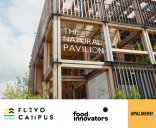
Flevo Campus, Food Innovators and UPALMERE! are organizing this No Failure, No Glory evening.
Entrepreneurship is having courage, seizing opportunities, and above all, sticking your neck out. Mostly with success and at the same time, running the risk of making wrong decisions due to all the challenges.
Often the focus is on the successes, and we like to share those, but there is much to be learned from mistakes others have already made. That's why Flevo Campus and UPALMERE! are organizing this No Failure, No Glory evening. Let yourself be nourished and inspired by candid entrepreneurial stories.
Program:
Networking with Drinks and Bites: From 17:00 to 17:30, you can network in a relaxed atmosphere and enjoy delicious snacks and drinks.
From 17:30-18:00 we start the No Failure, No Glory stories: Led by Janno Lanjouw, journalist at Flevo Campus, various entrepreneurs will share their most instructive moments of failure in sessions of 15 minutes each. Expect vulnerable, yet humorous stories about companies that struggled in the start-up phase, reacted too late to market changes, or were ahead of their time. What went wrong? And what did they learn from it and how did it make them more successful?
Q&A: After each story, you have the opportunity to ask your questions. Dive deeper into the experiences of these entrepreneurs and learn from their insights.
Wrap Up and Drinks: At 19:00, we will conclude the evening with drinks, giving you the opportunity to continue conversations, exchange ideas, and make new connections.
Sign up via link and join this event!
😀Is betrokkenheid van de gemeenschap de moeite waard? Enquête van 1 minuut😀

Hallo allemaal, Fijne Donderdag, 😀 (English below)
Wij willen graag begrijpen en leren oof participatie in de gebouwde omgeving de moeite waard is en welke uitdagingen je daarbij bent tegengekomen.
Vul deze enquête van 30 seconden (max. 1 minuut) in en kijk wat andere professionals ervaren.
Thank you,
Playground Team
www.plgrnd.city
----------------
Hello all, Happy Thursday, 😀
We would like to understand and learn if participation in the built environment is worth it and what challenges you have experienced with it.
Please complete this 30-second (max 1 minute) survey and see what other professionals experience.
Cheers,
Playground Team
Is community engagement worth it? 1 Minute Help
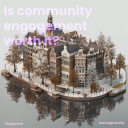
Hallo allemaal, Fijne woensdag, 😀 (English below)
Wij willen graag begrijpen en leren oof participatie in de gebouwde omgeving de moeite waard is en welke uitdagingen je daarbij bent tegengekomen.
Vul deze enquête van 30 seconden (max. 1 minuut) in en kijk wat andere professionals ervaren.
Cheers,
Playground Team
----------------
Hello all, Happy Wednesday, 😀
We would like to understand and learn if participation in the built environment is worth it and what challenges you have experienced with it.
Please complete this 30-second (max 1 minute) survey and see what other professionals experience.
Cheers,
Playground Team
www.plgrnd.city
Stay up to date
Get notified about new updates, opportunities or events that match your interests.

